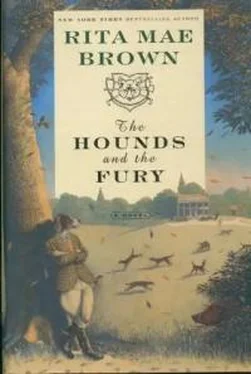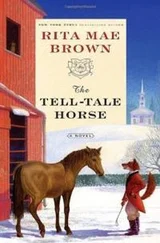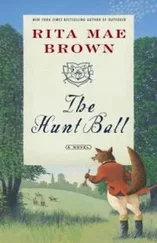“Retail’s pretty amazing.” Pamela also liked business, but from a different angle than Felicity.
“I wish Marion would take on apprentices,” Felicity laughed, mentioning the owner of Horse Country. “I’d work for clothes.”
“Me, too,” Val agreed.
They commented on various delightful offerings and deplored their relative poverty, which was funny considering they were rich kids. But they were still kids and, with the exception of Val, were kept on a fairly strict allowance. Val’s parents often overdid; she liked that in material terms, but it embarrassed her with her peers.
The funny thing about Pamela’s parents was that they kept her on a short money leash, but then her father would send the corporate jet for her. Of the four girls, Pamela’s home life was the unhappiest. Her mother, Thaddea Bolendar, had been a highly paid model in the 1970s. She’d made the cover of Vogue more than once, and she never ceased to remind her daughter, a few pounds overweight, that she wasn’t perfect and she’d never make Vogue.
Val reveled in unconditional love, which gave her tremendous confidence. She was a happy young woman, if occasionally overconfident.
Felicity’s parents also provided support, but they were exacting about her grades. They expected her to succeed, and this expectation was inferred, not expressed. She had lived up to it so far.
Tootie’s parents loved her dearly, gave her a sharp moral compass, and had taught her discipline. Young though she was, she was the most organized and focused of the girls. Her father, who measured all things by money, pressured her to become an investment banker. Her mother mostly expected that she would have a dazzling career in whatever she chose and would marry an appropriate man. That meant rich. Both parents would prefer he be African-American, but the real cutoff was money.
They sat there, chattering away, talking about their studies, their friends, their beloved horses.
“Tomorrow’s hunt is going to be the best. I just know it,” Val enthused.
“The grays are mating. Reds should be, too,” said Tootie, who loved nature far more than banking.
“Bet it’s one of those hunts we never forget.” Pamela, too, was enthusiastic, a rare occurrence. She was glad to be sitting with the other three. She wanted to be part of the group but lacked that easiness and warmth that make others comfortable. At least the chip on her shoulder was shrinking.
“I remember every single one.” Tootie was so serious the others looked at her.
“Really?” Val recalled highlights, not every detail.
“Tomorrow will be a good one. We’ll all remember,” Pamela again predicted.
CHAPTER 16
The freezing and thawing, and a few days of mid-forties temperatures, made parking at Orchard Hill unwise. The nights stayed cold. The farm road leading in was too narrow to handle the volume of trailers, and there was no way to park in the fields, which would be frozen at first cast but possibly a muck hole when hounds returned.
Two hours before casting hounds, Sister put a message on the huntline number that everyone should park at Chapel Cross. The membership knew to check in. They were glad they did, because the area around the tiny church had been plowed.
Masters must be mindful of landowners, sextons, and other kindly people who call in useful information. Each year the hunt club made a nice donation to Chapel Cross, and she herself always gave the sexton one hundred dollars at Christmas. It helped that she liked everyone there, so it never seemed a chore to make the rounds.
Adolfo Vega, the sexton, was grateful for the cash and for the straw and manure that the members carried to his mulch pile. Adolfo prided himself on the gardens around the white clapboard church. He credited the manure for some of the result.
Any members not properly cleaning up after their horses faced a stiff fine, accompanied by a reprimand from the master. The reprimand was worse than the seventy-five dollars. Sister bided no disturbing of landowners who were friends of hunting.
Walter arrived an hour early to direct parking so no one would get stuck. The parking lot, not huge, called for maneuvering. Clemson, his older tried-and-true hunter, stayed on the trailer, happily munching from his hay bag while Walter, in his Wellies, got everyone squared away.
Sister and Shaker liked to park the party wagon slightly distant from the rest of the trailers. The hounds, obedient but curious, could be tempted to investigate someone’s tack room if the door was open once they were out of the party wagon. Trinity evidenced a streak of kleptomania. In the bustle to mount up, someone usually forgot to latch a trailer door.
Today, the party wagon parked behind the chapel in front of the tidy churchyard, snow banked up against gray tombstones. Adolfo, knowing Sister’s habits, carefully plowed out a circle on the north side, sheltered from the winds because of a double line of blue spruce trees. Little snow had melted, although it was packed down, so Adolfo, without realizing it, had plowed off the gravel path back there over dormant grass and had plowed over a den entrance. Foxes prudently dig more than one way in or out of a den. Even so, the medium-sized red dog fox who lived there was irate at having to clean out the snow to clear his entrance.
Shaker parked right over the entrance. Given the shade back there, he didn’t see it.
When the hounds bounded out of the party wagon, Ardent wiggled under the trailer.
“Fox.”
Before the others could join him, Shaker, thinking the older hound was having a silly moment, called him away. And Ardent, who deserved his appellation, crawled out. No point in getting into trouble before the hunt even began.
It mystified the hound that Shaker couldn’t smell the den; it was potent, even with the sun barely nudging the horizon.
Noting his mournful face, Cora predicted, “Don’t fret, Ardent. By the time we come back here he’ll smell it, and you’ll be golden.”
“I forget how bad their noses are.” Ardent fell in with the others as they walked down the gravel road, heading south and east to Orchard Hill.
The brisk air tingled in nostrils, on cheeks. Those who had slipped toe warmers into their boots had reason to be grateful. The mercury hung at thirty-one degrees but would surely rise to the mid-forties. The day, overcast, promised good hunting.
The fields and farm roads would require vigilance, for the surface would loosen with the rise in temperature, but underneath the soil would stay tight. Streaks of snow where the sun couldn’t reach looked like icing. In other places the snow had drifted so much it hadn’t melted down. But the general lay of the land was packed-down snow, with some bald patches due to earlier winds, all covered with heavy sparkling frost.
Puffs of condensation escaped horses’ nostrils, peoples’ mouths, and hounds’ mouths. A bit of steam lifted off horses’ hindquarters, but not much, not yet.
Sister loved mornings like this. Canada geese, many of which stayed throughout the winter, flew overhead, honking flight directions, their V formation later imitated by fighter pilots. Rabbit tracks were encased in the frozen snow and mud along with raccoon and possum tracks. Deer tracks crisscrossed meadows.
She felt a warm wind current as they approached the turn into Orchard Hill. Just as quickly she passed through it. Today, January 7, was the feast day of Raymund of Pennafort, who lived to near one hundred, going to his heavenly reward in 1275. Raymund, from Catalonia, had become a Dominican: a dog of God—or watchdog of God, if one prefers. The two words dominus and canis had merged together. Raymund believed in reconciling heretics, Jews and Moors.
Читать дальше












